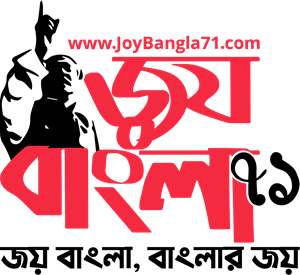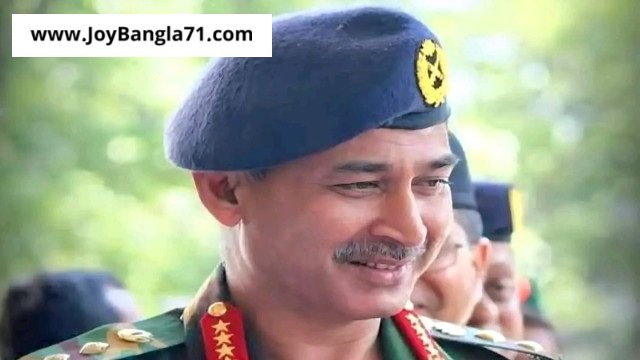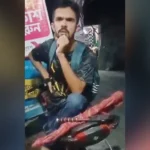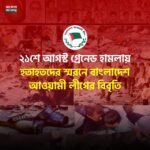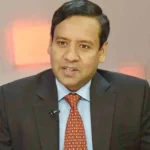বাংলাদেশের পথচলা: চলমান অন্তর্বর্তী সরকার নাকি নির্বাচন
বাংলাদেশের গতিপথ নির্ভর করছে অন্তর্বর্তী সরকারই চলবে, নাকি নির্বাচনের মাধ্যমে নির্বাচিত সরকার এসে সংস্কার শুরু করবে। ইতিহাস বলছে—দলগুলো সংস্কারে ধারাবাহিক নয়। বিএনপি নির্বাচনের পূর্বে প্রতিশ্রুতি দিয়েও ক্ষমতায় এসে সেকশন ৫৪ বাতিল করার মতো সহজ সংস্কারটিও করতে পারেনি। আওয়ামী লীগ অবশ্য অনেক সংস্কার করেছে তবে সেগুলোর সিংহভাগই ছিল নেতিবাচক উদ্দেশ্যে। অভিজ্ঞতার আলোকে বলা যায়—ইতিবাচক সংস্কার একমাত্র নিরপেক্ষ অন্তর্বর্তী সরকারের পক্ষেই সম্ভব; কোনো রাজনৈতিক দলের পক্ষে নয়।
বিএনপি জাতীয় সরকারের কথা বলে; কিন্তু তা কিভাবে হবে তার কোনো স্পষ্ট ব্যাখ্যা দেয়নি। ধরা যায়, বিএনপি হয়তো সমস্ত বড় রাজনৈতিক দলকে তাদের মন্ত্রিসভায় যোগ দেওয়ার সুযোগ দেবে। কিন্তু এখানে বিএনপির ৩১ দফা ও অন্তর্বর্তী সরকার দ্বারা গঠিত কমিশনগুলোর প্রস্তাবিত সংস্কারগুলোর সাংঘর্ষিক হওয়ার সম্ভাবনা প্রবল।
ড. ইউনুস আগামী ফেব্রুয়ারির মধ্যে নির্বাচন দেওয়ার প্রতিশ্রুতি দিয়েছেন, কিন্তু বাস্তবে বিপুল কাজ বাকি। সময়সীমা অসম্ভবের কাছাকাছি। জনাব নাসেরের নেতৃত্বে নির্বাচন কমিশন সক্ষম হলেও, বাস্তবায়নকারী সংস্থাগুলোর দুর্বলতা আছে। বিএনপি-প্রভাবিত বেসামরিক প্রশাসন, পুলিশ ও বিচারব্যবস্থা ভঙ্গুর; দীর্ঘ মোতায়েনে সেনাবাহিনীর ‘ডিটারেন্স’ কমে গেছে; থানাগুলো থেকে লুট হওয়া অস্ত্র ফেরত আসেনি; এবং আইন-শৃঙ্খলা দুর্বল। বিএনপি পরের নির্বাচনে আওয়ামী লীগকে অংশগ্রহণ করাতে চাইলে ছাত্রদের তীব্র প্রতিরোধের মুখোমুখি হতে পারে। আওয়ামী নেতৃত্ব যারা বর্তমানে আত্মগোপনে আছে, তাদের পুনরুত্থানও অনিশ্চিত। ‘সংস্কার কে করবে—অন্তর্বর্তী, না নির্বাচিত?’—এই বিতর্ক অবিরামভাবে চলছে। “প্রোপোরশনাল রিপ্রেজেন্টেশন” নিয়ে মতভেদ এখনও অব্যাহত। সংবিধান বদলের বিষয়টি এখনো নিচু স্বরে আলাপ হচ্ছে, তবে তা যেকোনো সময় ভয়ঙ্কর গর্জনে পরিণত হতে পারে। তেমন হলে গণপরিষদ গঠন, খসড়া সংবিধান প্রণয়ন এবং গণভোট গ্রহণের সময়সাপেক্ষ পথ ধরতে হবে।
সম্ভাব্য কিছু দৃশ্যপট
দৃশ্যপট-১: ঘোষিত সময়ের মধ্যে নির্বাচন।
ইসির সামনে বর্তমানে ছাত্রদের আপত্তি—(ক) আওয়ামী লীগের অংশগ্রহণ, (খ) জুলাই সনদ বাস্তবায়ন ও সংস্কারের আগে ভোট গ্রহণ, (গ) এবং পুরানো সংবিধানের অধীনে ভোট গ্রহণ। শেষ দুটিতে ছাত্ররা আপোস করলেও প্রথমটিতে প্রতিরোধ জোরালো থাকার সম্ভাবনা বেশি। জামায়াতে ইসলামের “প্রোপোরশনাল রিপ্রেজেন্টেশন” এখনো অমীমাংসিত রয়ে গেছে। যদি “ন্যাশনাল সিটিজেন পার্টি” এবং জামায়াতে ইসলামি নির্বাচনে বিএনপিকে মোকাবেলা করার জন্য নিজেদেরকে প্রস্তুত মনে না করে তবে তারা সংঘাতমূলক ইস্যুগুলোকে কেন্দ্র করে সময় ক্ষেপণের চেষ্টা চালিয়ে যাবে এবং নিজেদেরকে আরও সুসংগঠিত করার জন্য সচেষ্ট হবে।
সব বিরোধ মিটলেও পরের চ্যালেঞ্জ হবে মুক্ত, সুষ্ঠ, বিশ্বাসযোগ্য ও অংশগ্রহণমূলক নির্বাচন। ১৯৯১/১৯৯৬/২০০১-এর উৎসবমুখর নির্বাচনের মতো একটি ইনক্লুসিভ নির্বাচন দুর্বল অন্তর্বর্তী সরকার দ্বারা নড়বড়ে আইন-শৃঙ্খলার মাঝে সম্পন্ন করা প্রায় অসম্ভব। আওয়ামী লীগের অনুপস্থিতি অন্তর্ভুক্তিতা নিয়ে প্রশ্ন তুলবে। ভারত দ্রুত নির্বাচন চায়; তবে সেটিকে ২০১৪/২০১৯/২০২৪-এর চেয়েও খারাপ দেখানোর জন্য তার প্রচেষ্টার অন্ত থাকবে না। এটি সে করবে, ভবিষ্যতে যে রাজনৈতিক দল ক্ষমতায় আসবে তাকে অস্বচ্ছ নির্বাচন ও বৈধতা সম্পর্কে প্রশ্ন তুলে নিয়ন্ত্রণে রাখতে। পাশাপাশি, আওয়ামী ক্যাডারদের দ্বারা কারচুপি-সহিংসতা-খুন—সম্ভাব্য। বিদ্রোহী ও ডামি প্রার্থীদের মধ্যে সংঘাতের সম্ভবনাও উড়িয়ে দেয়া যায়না। ফেব্রুয়ারির মধ্যে সুষ্ঠ ভোট সম্ভব না হলে এক বছর পিছাতে পারে—কিন্তু এতে নির্বাচনের মান বাড়বে না। বেসামরিক প্রশাসন, পুলিশ ও বিচারব্যবস্থা পুনর্গঠিত না হলে আর আইন-শৃঙ্খলার উন্নতি না হলে বিশ্বাসযোগ্য ভোট দুর্লভই থেকে যাবে। অতিরিক্ত এক বছর শুধু অসন্তোষই দীর্ঘায়িত করবে।
দৃশ্যপট-২: সংস্কার আগে, নির্বাচন পরে।
ছাত্রসমাজ ও সামাজিক মিডিয়ার সমর্থনপুষ্ট সরকার যদি সংস্কারকে অগ্রাধিকার দেয়, ২–৩ বছরের মধ্যে তা বাস্তবায়ন করা সম্ভব; বিশেষতঃ যদি মন্ত্রিসভা তরুণ-উদ্যমী নেতৃত্ব দ্বারা পুনর্বিন্যস্ত হয়। তবে এ ধরনের সিদ্ধান্ত নির্বাচনপন্থী দলগুলো প্রবলভাবে প্রতিরোধ করবে।
নির্বাচনমুখী পক্ষগুলোর চার উদ্বেগ: (১) জুলাই সনদ বাস্তবায়ন ও সংস্কার,# রাজনৈতিক-সামাজিক দৃশ্যপট বদলে দেবে যা তাদের রাজনৈতিক এজেন্ডাকে বিঘ্নিত করবে; (২) ছাত্ররা শক্তিশালী বিরোধী শক্তিতে পরিণত হবে যা নতুন সরকারের কার্যক্রমে বিঘ্ন ঘটাবে; (৩) পুরোনো পদ্ধতিতে শাসন করা চ্যালেঞ্জের মুখে পড়বে; (৪) এবং ড. ইউনুসের মেয়াদ যত দীর্ঘ হবে তত তার ইমেজ বাড়বে যেটি পরবর্তী নির্বাচিত সরকারের জন্য চ্যালেঞ্জ হয়ে দাঁড়াবে।
ফলে সংস্কার-পক্ষ এবং নির্বাচন-পক্ষের মধ্যে সংঘর্ষ—অরাজকতা অবশ্যম্ভাবী।
দৃশ্যপট-৩: পুরোনো সংবিধান ভেঙে নতুন সংবিধান।
এটি আমূল রাজনৈতিক-সামাজিক পরিবর্তনের একমাত্র পথ। বিএনপির পাল্টা-বিপ্লবী পদক্ষেপের কারণে এটি এখন কম সম্ভাব্য। তরুণ প্রজন্মে এখনও যে উত্তাপ আছে তাতে অবশ্য এর আবেদন ফিরতেও পারে। বিপ্লব-পরবর্তী তুচ্ছ ইস্যুর কোলাহলে এ পথটি হারিয়ে গেছে। তবে নতুন বাংলাদেশ গড়ার জন্য সেটিই ছিল শ্রেষ্ঠ। আমাদের বিপ্লব-পরবর্তী নেতৃত্ব ৫ আগস্টের আত্মাকে লালন করে শান্তি-সমৃদ্ধির পথে সমাজকে নিতে পারেনি। ৫ আগস্টের আগের ও পরের বাংলাদেশ যে ভিন্ন—এ বাস্তবতা তারা ধারণ করতে পারেনি, যেমন আমাদের পূর্বসুরীরা ২৬ মার্চের আগের ও ১৬ ডিসেম্বরের পরের বাংলাদেশের ভিন্নতা উপলব্ধি করতে পারেননি। এই ভিন্নতার অনুভবটি চিরতরে হারিয়ে গেছে, না আবার পুনরুজ্জীবিত হবে—তা বলা মুশকিল। তবে তা ফিরে আসলে প্রচণ্ড অস্থিরতা তৈরি হবে এবং বিএনপি এবং আওয়ামী লীগ এক হয়ে অন্তর্বর্তী সরকারকে প্রচণ্ডভাবে আক্রমণ করবে। সেক্ষেত্রে ভারতীয় হস্তক্ষেপের সম্ভাবনাকে একেবারে উড়িয়ে দেওয়া যায় না।
চলবে ………………
Where are we headed in the next five years?
Fourth Part
Bangladesh’s trajectory depends on whether it continues with an interim government or holds a national election to form an elected government and initiate reforms. Historically, political parties haven’t shown strong commitment to reforms. Even the BNP, despite election promises, couldn’t implement simple reforms like repealing section 54. The Awami League initiated reforms for negative purposes. Given past experiences, one can safely assume that, positive reforms can only be executed by a neutral interim government, not political parties.
The BNP leadership talks of a national government, but its meaning and tasks are unclear. We speculate such a government might build consensus across existing parties, unlike the current interim government. However, this idea is challenged by potential conflicts of interest between the BNP’s 31 points and reforms suggested by interim government commissions.
Dr Yunus has pledged to hold the national election by next February, but this is practically impossible due to the many tasks that need to be completed. Despite the election commission’s competence under Mr Naser’s guidance, weaknesses exist in the organizations responsible for executing the election. The BNP-controlled civil administration, police, and judiciary remain in disarray, and the military’s deterrence effect has been diminished due to prolonged deployment. Weapons looted from police stations have not been recovered, and the law-and-order situation remains poor. If BNP insist on getting the Awami League in the next election, it will face strong resistance from students and Jamaat e Islami. It may turn out to be a pipedream due to Awami League leaders’ inability to reemerge from their hidings. Besides, there is ongoing controversy about who will carry out the reforms –interim government or an elected government. There’s also a low level of discussion about changing the constitution, but the chances of this escalating into a major uproar are not entirely dismissed. If that happens, the country will have to go through time-consuming processes like electing a constituent assembly, drafting a constitution, and arranging referendums.
Let’s consider a few possibilities that could predict the future around the next election.
The first scenario is holding an election within the interim government’s promised timeframe. The election commission faces opposition from students over the Awami League’s participation, holding the election before signing July Charter and implementing reforms, and drafting a new constitution. Students may compromise on the last two, but they’ll likely resist the first. Jamaat e Islami’s insistence on conducting the voting on ‘Proportionate Representation’ has also not been settled. Resistance would be stronger if they feel unprepared to face BNP. In that case, they’ll buy time, focussing on confrontational issues to organise and prepare for a stronger fight later.
If the election commission resolves disputes, it faces the next challenge: holding a free, fair, credible, and inclusive election. Festive election like 1991, 1996, and 2001, seems unlikely due to the weak interim government and deteriorating law and order. Awami League’s non-participation raises questions about inclusivity. India, preferring an early election, would aim to portray it worse than the 2014, 2019, and 2024 elections to gain control over the winner party. Rigging, killing, and violence by Awami League party cadres and the rebel/dummy candidates are possible. If the interim government struggles to hold a free and fair election by February, it may postpone it for a year or so, but this won’t improve the election’s quality. Until the civil administration, police, and judiciary are revamped and law and order improved, a credible election remains elusive. This extra time will only prolong dissatisfaction.
In the second scenario, the government, backed by students, Jamaat e Islami and social media, aims to implement reforms before the election. With commitment, the government could swiftly implement these reforms within two to three years, especially if it reshuffles the cabinet with young and energetic faces. However, the ‘Group of Four’, who prioritises expediting elections, will strongly oppose such a decision.
The Group of Four has four main concerns. Firstly, July Charter and reforms could alter the political and social landscape, challenging their agendas. Secondly, it would give student revolutionaries time to form a formidable opposition, hindering the newly elected government’s progress, similar to the Awami League’s journey. Thirdly, reforms might disrupt their traditional governance style. Lastly, it would prolong Dr. Yunus’s tenure, enhancing his image and reputation, which could counter the new incumbent if they fail to deliver.
If the government, supported by students and Jamaat e Islami pushes for reforms, the Group of Four will oppose it, leading to anarchy with the BNP (covertly aided by the Awami League) and students/Jamaat clashing.
The third scenario, involving the dismantling of the old constitution and the creation of a new one, is the most radical. BNP’s counter-revolutionary move has made it unlikely, but the revival of the demand can’t be ignored given the youthful revolutionary fervour still boiling among the youth. This would have been the best course of action to establish a new Bangladesh, but it was lost amidst the confused scuffles over minor issues after the revolution. Our leadership failed to nurture the spirit of the July revolution and guide society to a peaceful and prosperous future. They failed to realise that Bangladesh before and after 5th August were different, just as our predecessors failed to understand Bangladesh before 26th March and after 16th December. Whether this feeling can be revived or is lost is uncertain. If it is retrieved, it could cause serious unrest, with BNP and Awami League joining forces against the weak interim government. In that case, India would likely intervene to secure victory.
To be continued …………
